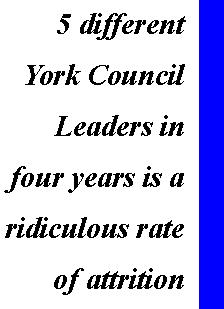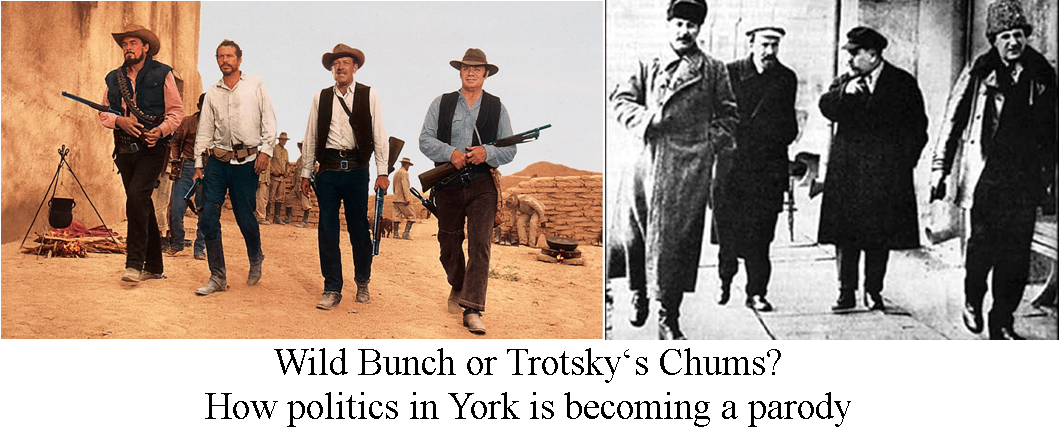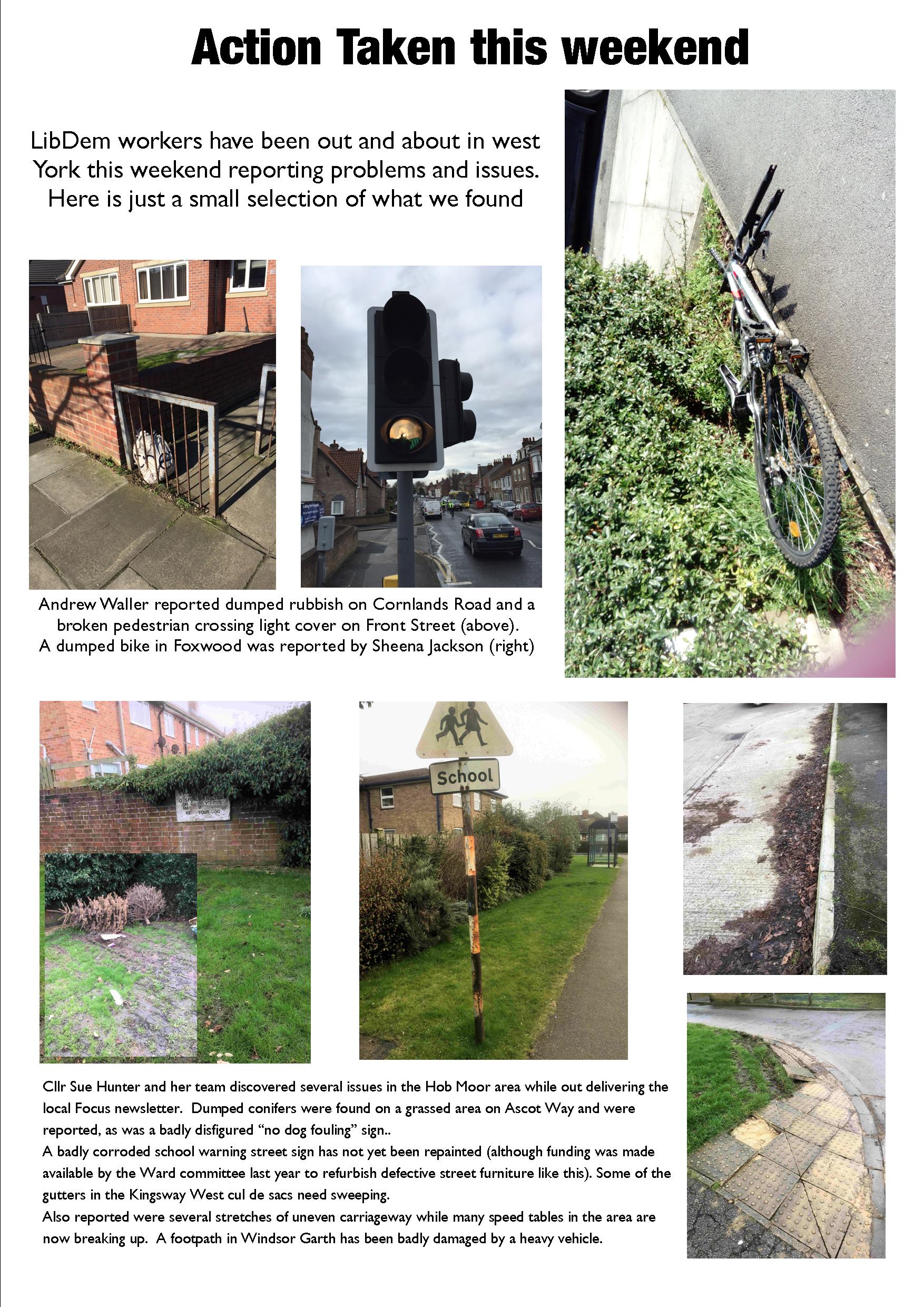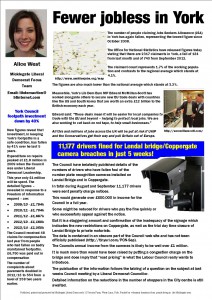 The decision by York Tory Councillors to ditch the Council Leader last week wasn’t entirely unexpected. Cllr Carr blundered in the summer when he unilaterally sacked two LibDem members of the Executive. At the time the local standards board had not had the opportunity to investigate the allegations that had been made against them.
The decision by York Tory Councillors to ditch the Council Leader last week wasn’t entirely unexpected. Cllr Carr blundered in the summer when he unilaterally sacked two LibDem members of the Executive. At the time the local standards board had not had the opportunity to investigate the allegations that had been made against them.
The arbitrary action set a precedent, so when a Tory Executive Councillor was accused of failing to declare a pecuniary interest in the Local Plan, the Council Leader had little option to sack him as well.
Whether any of the three have committed any offence has yet to be determined, although the Police have said there is nothing to investigate in the case of the two LibDems.
So where does that leave the York Council?
Cllr Ian Gillies is expected to be installed as the new Council Leader on 22nd February.

He will be the fifth Council Leader that York has had in just over 4 years (Alexander, Williams, Steward, Carr, Gillies).
That is frankly a ridiculous rate of attrition and is damaging not only to relationship within the City but also to York’s reputation at regional and national level.
It takes a new Leader – no matter how experienced – at least 18 months to establish good working relationship both within and outside the Council. Only then can the real work begin.
Cllr Gillies starts with the advantage of being well known in the City. He has a recent successful year as Lord Mayor behind him. He was a major influence in the years between 2007 – 2011 when the Council was also balanced. His view then was that the City should come above politics. He tried the same approach when Labour had an overall majority, facing some criticism from his own side in 2013 when it was becoming clear that the Alexander regime was doomed.
But with scarcely 15 months to go before the next “all out” Council elections, Cllr Gillies effectively faces a damage limitation challenge. Whether he will even be able to repair relations with the LibDems remains to be seen.

So why have things gone so badly wrong over the last few years?
It is mainly a system problem. All out four yearly elections tend to promote a rapid turn over of Councillors. Fewer these days seem to survive for the 10 years or necessary to build the experience necessary for high office.
Recently few have been able to muster more than 4 years’ experience when they became Leader. Cllr Carr set a record, for inexperience, though, taking the most demanding job at West Offices scarcely 18 months after he was first elected.
Annual elections – where a third of the Council is up for re-election each year – would avoid the extreme shifts in support which usually reflect short term disillusion with whichever party is in power nationally.
The other system failure is the Leader model itself.
The model gives substantial powers – including on the spot “hire and fire” arrangements of the executive committee – to one individual. Effectively if Executive councillors don’t follow his or her instructions then an excuse is found to sack them.
The system simply doesn’t work on a balanced Council. Here the subtleties of discourse and compromise are needed to move forward. Unilateral action by an individual simply promotes mistrust.

There is a warning here for those seeking a Yorkshire Mayor. If she or he chooses to, then they could spend 4 or 5 years completely ignoring the wishes of residents, while pursuing policies based on a fundamentalist ideology or sectional interest.
Recent events are likely to lead to a call for the reintroduction of the “committee system” at Council level. Here all issues are debated openly by committees which reflect the overall political balance of the Council.
It promotes openness and consensus decision making.
It won’t come quickly but perhaps by 2019 electors will be ready to accept that the present system simply isn’t working in York.


 The decision by York Tory Councillors to ditch the Council Leader last week
The decision by York Tory Councillors to ditch the Council Leader last week 






